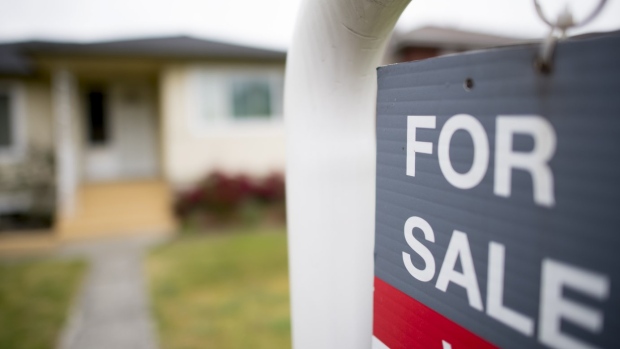“This has become probably the most important both economic and political problem facing the country right now,” said Tyler Meredith, a former head of economic strategy and planning for Finance Minister Chrystia Freeland.
“And especially given the significant emphasis the government has put on immigration and the relationship between immigration and the housing market, there is a need to do more.”



The majority of the electorate — 65%+ — own homes, and 75%+ of Canadians’ wealth is tied up in real estate.
There is absolutely no way this can get fixed politically in our democratic system. Any party that tries to deflate house prices in any meaningful way is committing its own suicide.
The only hope is that prices level off (or … you know… at least stop doubling every 3 - 4 years?) and the rest of the economy somehow catches up to make houses affordable again.
But I can’t see how that’s going to happen. We’re going to have to have a nasty recession to sort this out, and that won’t be because of anything whoever is in power at the time did intentionally.
The problem about just hoping for the best is that there’s basically no way for it to happen naturally. Without an external force to make prices fall in some sort of controlled way, market and local forces will just keep the prices rising, until they crash. And while a part of me kinda hopes for it on a surface level, a housing crash is something we really don’t want.
If the housing prices crash, that means that the retirement funds of most people will simply disappear. Most people have almost all of their retirement funds locked up in their homes, with the hope that the value will continue to rise until they’re ready to withdraw from the market. But if the housing bubble bursts, then you’ve got millions of people who suddenly have to figure out how to go from expecting to smoothly sliding into retirement to not even being close to having enough money saved up to retire before 80.
The results of this is that everybody with a home will suddenly stop buying anything but the essentials, and doing everything they can to recoup as much liquid cash as they can with what they have left, while scraping every penny they can from their expenses. It’s basically millions of people suddenly just eject themselves from the economy, and we’re instantly into a major recession. Everybody’s working as hard as they can to save as much money as they can, but nobody’s buying anything, businesses lose profits, so everybody starts to shed jobs, making people try even harder to save money, and the cycle continues.
Without a controlled soft landing, it’s hard to see how we don’t get into a death spiral. And if you want the best case scenario of a place where this really happened, just look at Japan with its Lost Decades. And more of a worse case, look at what’s going on in China right now.
While I think what you say is accurate, I think the main issue here isn’t just the housing crisis being manifested, it’s the part you hinted at where our economy is so dependent on non-essential spending to keep it running. On one hand you have people overspending and going into debt to have new vehicles, RV’s, McMansions, and we have people complaining that this rampant consumerism is killing the environment because people keep spending on single-use items, or trashing otherwise serviceable items to keep up with the Jones’s. On the other hand, if that consumerism goes away, people pay off their debts and don’t buy all the new toys, then the economy and those of us in the working class section of that economy, struggle.